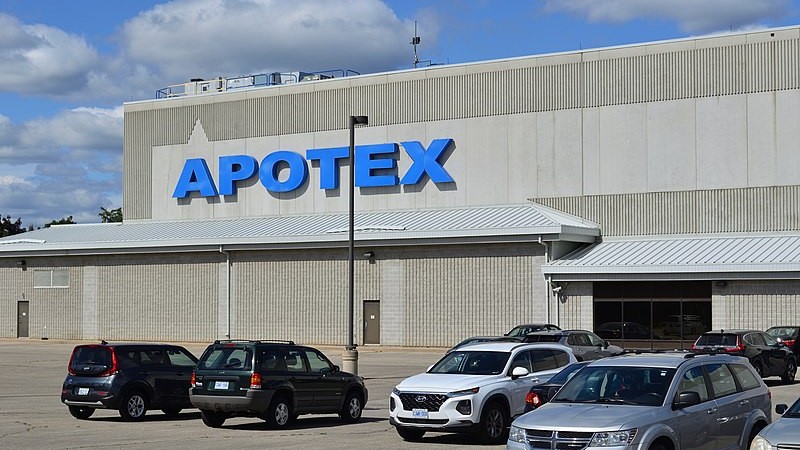Obesity treatment for seniors has shifted dramatically in recent years, as an increasing number of older adults and their healthcare providers turn to prescription medications, like Wegovy, instead of traditional surgical options such as bariatric surgery.
For American seniors, managing weight can be especially challenging due to age-related factors such as limited mobility, changes in metabolism, and the presence of multiple health conditions. This has made effective, accessible, and sustainable weight-loss solutions a significant healthcare focus.
A primary concern in the use of medications like Wegovy is the financial burden, particularly on older adults who may already face high healthcare costs. A recent study revealed that the average annual cost of GLP-1 receptor agonists, the category of drugs Wegovy falls into, rose by 46% over two years, reaching approximately $18,507 per year. Given that seniors are often on fixed incomes, this rise in cost presents a barrier to accessing these medications.
Comparatively, a control group not using GLP-1 medications showed only a moderate increase in healthcare expenses, underscoring the impact of prescription drug costs on overall healthcare spending.
High medication costs are pushing insurers and employers to reconsider their health benefits, and discussions are ongoing about how best to cover these treatments within Medicare, a critical factor for seniors.
Key Takeaways
Obesity treatment for American seniors is shifting towards prescription medications like Wegovy over traditional surgical options due to financial concerns and accessibility issues.
- GLP-1 medications like Wegovy offer an alternative to bariatric surgery, but come with a high annual cost of $18,507, making them inaccessible to many seniors on fixed incomes.
- Patient adherence is a significant challenge with GLP-1 medications, highlighting the need for healthcare providers to work closely with seniors and provide reminders and support systems to maintain regular medication schedules.
- A comprehensive treatment strategy that combines GLP-1 medications with lifestyle changes, such as improved diet and physical activity, can maximize the potential of these drugs and improve overall health outcomes for seniors.
Medication adherence and health outcomes
One challenge that has emerged with GLP-1 medications is patient adherence, meaning the extent to which patients consistently take their prescribed medications as directed. For older adults, adhering to a new medication can be complex, as some may already be managing multiple prescriptions or may experience cognitive decline.
Studies have shown that only a portion of patients stick with their GLP-1 treatments over the long term. This impacts the effectiveness of the medication, as the benefits demonstrated in clinical trials may not fully translate to real-life outcomes without consistent use. To maximize the potential of these drugs, healthcare providers need to work closely with seniors, providing reminders and support systems to help them maintain regular medication schedules.
#GLP1 & muscle health ⤴️ adaptive response to #weightloss ‼️
🔹 Studies show 20-50% of total weight loss from GLP-1 RAs is lean mass, but quality improves, reducing fat infiltration.
👉 Important for patients at risk of sarcopenia, especially older or frail individuals.
❗️Need… pic.twitter.com/ZuflHs7pFg
— GoggleDocs (@GoggleDocs) October 27, 2024
Adherence challenges also highlight a broader issue: while GLP-1 medications can lead to significant weight loss, optimal results are typically seen when combined with lifestyle changes. Prime Therapeutics, a pharmacy benefits manager, advocates for a holistic approach to weight-loss treatment.
They emphasize pairing GLP-1 medications with lifestyle modifications, such as improved diet, increased physical activity, and regular check-ups. This integrative approach can maximize the medication’s impact, particularly for seniors who may benefit from low-impact exercises, like walking or swimming, and dietary modifications to suit their metabolic needs.
Decline in Bariatric surgery
Alongside the rise of GLP-1 medications, a significant shift away from bariatric surgery has been observed. A study published in JAMA Network Open reports a 25.6% drop in the number of patients choosing bariatric surgery for weight management. Instead, many individuals are now opting for less invasive options like Wegovy.
While GLP-1 drugs offer an alternative, bariatric surgery remains a highly effective treatment for obesity, particularly for seniors who may require a more dramatic intervention due to health risks associated with obesity.
However, surgical procedures also involve greater risks for older adults, including longer recovery times and potential complications, which may contribute to the shift toward medication.
For some seniors with complex medical histories or conditions like heart disease and diabetes, bariatric surgery may still be necessary, but the decision requires a careful assessment of benefits and risks. Older adults considering surgery often require additional support both before and after the procedure to ensure positive outcomes.
This reinforces the need for tailored treatment plans that factor in the unique health challenges faced by seniors.
A comprehensive treatment strategy
As obesity treatment evolves, the emphasis has shifted toward a holistic approach that addresses obesity as a chronic condition rather than a short-term issue. This includes a combination of GLP-1 medications, lifestyle changes, and consistent healthcare support. Researchers continue to study the long-term impacts of GLP-1 drugs, especially for seniors who often need sustained support to maintain weight loss and manage associated health conditions.
Making these treatments more accessible and affordable for seniors has become an urgent priority, especially given the high costs tied to GLP-1 medications.
GLP-1 medications are not just a stand-alone solution but rather part of a comprehensive treatment strategy. Seniors, especially those with limited mobility, may benefit from a program that includes structured lifestyle changes.
Physical activity routines tailored to individual abilities, such as water aerobics or gentle stretching exercises, can complement medication and improve overall health. Additionally, a balanced diet that emphasizes nutrient-dense foods is essential for managing weight and maintaining health as one ages.
Healthcare providers, especially those working with older patients, are increasingly recommending such integrative programs to improve outcomes.
The role of future research
More research is needed to understand the full implications of GLP-1 medications in everyday clinical settings, particularly regarding long-term safety and effectiveness for seniors. This includes exploring the comparative advantages and disadvantages of weight-loss medications versus bariatric surgery.
With age comes an increased risk of side effects or interactions between medications, which is especially relevant for seniors who may already be managing several health conditions. Research should also focus on developing accessible and affordable options for obesity treatment, ensuring that seniors, including those in underserved communities, have equitable access to effective solutions.
While some seniors may find medications like Wegovy beneficial, it’s essential to acknowledge that each individual’s journey with weight management will differ. For those unable to access GLP-1 drugs due to cost or availability, bariatric surgery may still be a viable option, albeit one that requires a tailored approach. Healthcare providers and policymakers must remain vigilant, assessing the balance between various treatment options to meet the needs of an aging population.
Balancing cost and accessibility
Expanding access to effective obesity treatments remains crucial as healthcare systems attempt to balance rising drug costs with the need for accessible, sustainable weight-management options. This balancing act is especially critical for elderlies. Many older adults live on fixed incomes and rely on Medicare, which currently has limited coverage for weight-loss medications.
This reality underscores the need for policy changes that expand Medicare coverage to include proven weight-loss medications, helping to alleviate some of the financial burdens on seniors.
In the face of the significant financial strain that GLP-1 medications place on patients and healthcare systems, experts agree that alternative solutions and support structures must be considered. This could mean developing community-based programs that provide seniors with dietary counselling, physical activity guidance, and medication management assistance to ensure they have a well-rounded support system.
Such initiatives would not only support weight loss but also contribute to overall health improvement, reducing the need for expensive interventions.
Moving forward
As research into weight-loss medications and obesity treatment continues to advance, healthcare providers, insurers, and policymakers have the opportunity to shape a more senior-focused approach to care. This means considering the unique needs, financial constraints, and health challenges that seniors face. Ensuring seniors receive individualized support can improve adherence to medications and lifestyle programs, leading to better long-term outcomes.
The evolving field of obesity treatment presents seniors with new options, but it also comes with challenges. Healthcare providers must prioritize understanding each patient’s specific circumstances and making adjustments to create realistic and achievable goals. With a strategy that combines medical interventions like GLP-1 medications with accessible lifestyle changes, seniors can experience meaningful improvements in health and quality of life.















